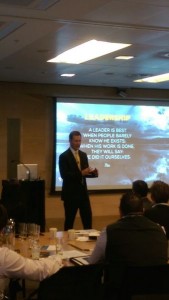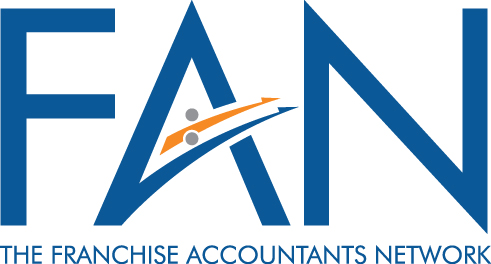FAN Conference 2015 Wrap-up
/The inaugural Franchise Leaders & Accountants Conference took place on June 16th, 2015. It was held in Sydney, at ANZ Tower, and attended by 70 franchise accountants and leaders from public practice accounting and franchise systems.
We had a full and diverse agenda, which covered many topics of interest to franchise accountants. Feedback and comments about the FAN Conference included:
- Good day, glad I came
- Worthwhile training, very relevant to the industry
- Enjoyable, good quality speakers and good vibe in the room
Here are highlights that we captured from the main sessions at the conference.
Benchmarking Tips & Traps
Benchmarking can yield many benefits for franchises and is a key topic of interest to franchise accountants. However, there are several traps that can undermine its success and it’s important to be aware of these.
Doug Hutchinson mentioned that some franchisees don’t embrace benchmarking at first. This highlights the need for a deliberate strategy to overcome any resistance to their participation.
Key points of Doug’s talk included:
- Benefits of benchmarking include providing feedback on the effect of the activities of the business. It also tends to create friendly competitiveness amongst the network.
- In a franchise, benchmarking can also support franchise development by providing financial information a prospect can use to assess the business they are considering.
- Common traps of benchmarking include failing to look outside your own business, too many measures and misuse of metrics to ‘paint a picture’.
- It’s important to consider the needs of your network and the complexity of the franchise system before deciding on a software solution to support your implementation of benchmarking.
Economic Update
Katie Hill, economist from the ANZ Bank, highlighted several economic factors that will affect franchises in the months and possibly years ahead. These include:
- Cooling of the mining sector will mean job losses in mining and related sectors.
- Fragile consumer confidence, coupled with a fall in average wages over the last 2 quarters. Linked with this is an increase in precautionary cash savings as the ‘feel good’ factor from growth in house prices is overwhelmed by concern about the economy.
- Household spending growing at around 2% per annum, which is half the rate experienced pre-GFC.
- Business is holding back on investment, as leaders await evidence of a pick up in consumer sentiment and spending.
ACCC
Dr Michael Schaper, one of the two Deputy Chairs of the ACCC provided information about the ACCC and its role in the franchise sector. Amongst the points he highlighted were:
- Financial penalties are now in place for breaches of the Franchising Code of Conduct.
- The ACCC carefully considers whether to take enforcement action and they don’t take it lightly. He also flagged a focus on the franchise sector.
- “I wasn’t told” or “I was promised” - Many of the complaints made to the ACCC in connection with franchising arise from earnings claims, or perceived earnings claims, and issues around training and support.
- Although prospective franchisees must be advised they should seek independent advice before entering into a franchise agreement, fewer than 50% actually obtain this advice.
Dr Schaper also pointed out that while franchisees often look to their adviser for answers, it is important they think through business decisions for themselves as they are the ones ultimately responsible.
Financial Distress
Even a franchise business can get into financial difficulty. In fact, in any system there will always be some business who are struggle financially.
Peter Knight & Kate Groom from Smart Franchise highlighted some of the causes of financial distress and warning signs to watch for. They also pointed out key areas for franchise accountants to consider when dealing with franchisees in financial distress. Causes of financial distress include:
- Lack of sales, which can be a result of poor sales skills or poor sales management
- Operational factors, such as staffing decisions, and buying practices
- Inadequate financial information and lack of financial acumen
- Tax planning: failing to take into account specific franchise factors such as refurbishment requirements or end of term arrangements when making year end arrangements.
It can be difficult for all involved when the ‘moment of truth’ occurs and financial problems come to the surface. At this point it’s important to carefully consider your response so that it’s helpful to the business owner.
The Modern CFO
As a franchisor business grows, the role of the finance person tends to broaden from transaction based to encompass other areas. This leads to questions about the role of the CFO, and the skills required.
Sean Mura is CFO at Anytime Fitness Australia. He highlighted the many aspects of the business in which he is involved. While overseeing the accounting function is a big part of his role, it involves a lot more than accounting and compliance.
Amongst other areas, Sean is involved with the risk management committee which has identified several areas of risk that could undermine the business. These include including risks common to many franchises, such as litigation, franchise closures and safety. As CFO he is implementing systems to help mitigate key risks, including financial reporting systems.
Sean also highlighted the range of skills needed to undertake the role of CFO, including communication and leadership skills. He considers it is also important to have IT skills and the ability to work with other departments within the business. He pointed out that a diverse career background is the best way to acquire the the skills and knowledge a modern CFO needs.
Mark Bilton: Get Real Boss!
 Mark Bilton is a highly experienced leader with particular experience in business turnarounds. In the franchise sector he was Group Managing Director of Gloria Jean’s Coffees at a particularly challenging time. Attendees were particularly interested in his personal take on leadership.
Mark Bilton is a highly experienced leader with particular experience in business turnarounds. In the franchise sector he was Group Managing Director of Gloria Jean’s Coffees at a particularly challenging time. Attendees were particularly interested in his personal take on leadership.
Mark highlighted his view that the 20th century ‘command and control’ approach to leadership is not appropriate in dealing with today’s business environment.
In his talk, Mark reflected on 8 characteristics of leaders, based on his own experience. These include being collaborative, visionary and grounded, as well as understanding that ‘control is an illusion’.
Mark’s personal examples, drawn from years working in challenging business environments, provided an engaging and inspiring end to the day.


